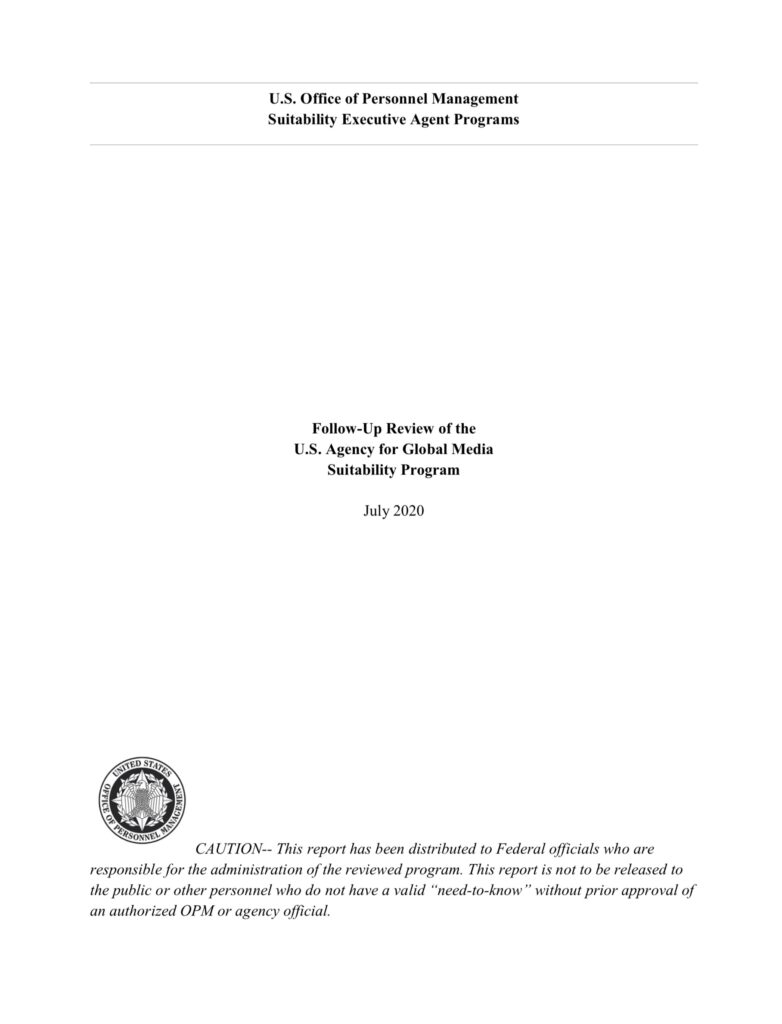OPINION
By Dan Robinson
For many years, Voice of America broadcast managers had access to classified State Department cable traffic, a practice that raised questions about VOA claims of independence.
Through the 1990’s and into the early 2000s, service chiefs in at least one major VOA division had daily access to cable traffic from U.S. embassies and diplomats. This access is also thought to have existed in decades before, in the 1970’s through 1980’s.
“Yellow sheets” as they were often referred to within the agency were placed in the mailboxes of VOA language service managers. In one service, these boxes remained open, and vulnerable to access by non-authorized personnel, throughout the work day.
The cables contained background and other information from embassies and U.S. diplomats, including descriptions of meetings and conversations with foreign officials and leaders, opposition figures, as well as policy observations by U.S. diplomatic personnel.
It’s not clear how long in total this practice was commonplace at VOA. For decades, VOA has portrayed itself as being just another media organization, though one funded by taxpayer dollars.
Regular access by employees involved in management and preparation of news and online material is not something that would be seen in non-government media organizations.
Access to such information by VOA managers raised the possibility that information in cable traffic would find its way into VOA news reports or have an impact on those reports in ways that would not occur in commercial media.
As a point of information, VOA’s Journalistic Code states that VOA staff “do not accept treatment or assistance from U.S. government officials or agencies that is more favorable or less favorable than that of staff of private sector news organizations.”
It was common practice dating back many decades for officials of the old U.S. Information Agency (USIA) to serve at Voice of America on special details. These individuals were used to having daily access to diplomatic cables.
As an example, at one point in the late 1990’s, VOA’s East Asia Division was headed by an official who had served as public affairs officer overseas with USIA. That division contained within it services broadcasting to China, Vietnam, Indonesia, Myanmar, Cambodia and other countries targeted by VOA.
The Broadcasting Board of Governors was created in the mid-1990s and re-branded itself as the U.S. Agency for Global Media in 2018.
It’s unclear whether officials of USAGM and VOA, the largest federalized entity still existing under the agency, still have any access to State Department cable traffic and if they do, what level security clearances they hold.
This history of access by VOA management officials is important against the background of a protest letter sent to the current Senate-confirmed CEO of USAGM, Michael Pack.
In an early draft, VOA reporters and editors who authored the letter had urged acting VOA Director Elez Biberaj to issue a public statement clarifying that VOA journalists “do not hold classified access level security clearances.”
In fact, agency employees hold security clearances of various levels, based on assessments of the degree of risk to national security.
VOA’s foreign correspondents are required to travel only on regular civilian passports when conducting journalistic work, under guidelines written many decades ago, but were still issued diplomatic passports before going overseas on assignment.
Authors of the protest letter – only 14 of at least 27 VOA staff members having the role of correspondent or reporter – criticized Pack over his release of an OPM report that showed USAGM had permitted numerous violations of background investigation procedure for employees it hired, many of them from overseas.
Pack has said this presented serious threats to U.S. national security. The agency was ordered by OPM to re-investigate more than 1500 employees.
The protest letter to Pack contains no specifics on any actual harm done to VOA reporters, in the U.S. or abroad, resulting from Pack’s actions – including his non-renewal of visas for some broadcasters — since assuming the position of CEO.
Similarly, no specifics are provided as to harm being done to national security objectives, in contrast with Pack’s assertion of potential serious security threats resulting from years of mismanagement of the agency’s background investigation procedures.

